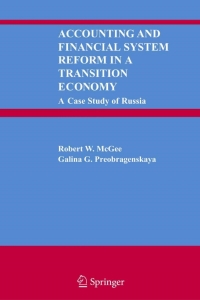Answered step by step
Verified Expert Solution
Question
1 Approved Answer
Calculate the taxable income/tax loss and the current tax liability (if any) for the financial year ended 30th June 2020. Prepare a journal entry to

Calculate the taxable income/tax loss and the current tax liability (if any) for the financial year ended 30th June 2020. Prepare a journal entry to recognize the current tax liability/tax loss.
Background information The profit before tax, reported in the statement of comprehensive income of SuperX Ltd for the year ended 30 June amounted to: 16,340,000 2020 Subscription revenue Government award income Doubtful debts expense Depreciation (Equipment) Depreciation (Buildings) Maintenance expense Employee benefits expense Rent expense Entertainment expense 510,000 919,000 102,000 663,800 163,000 459,000 306,000 153,000 255,300 The draft statements of financial position of the company at 30 June 2020 and 2019 showed the following assets and liabilities: 2020 ($) 2019 ($) Assets Cash 1,072,000 1,174,000 Inventory 2,297,000 2,093,000 Accounts receivable 6,638,000 6,331,000 Allowance for doubtful debts (531,000) (490,000) Prepaid rent 285,000 265,000 Equipment 6,638,000 6,638,000 Accumulated depreciation - Equipment (3,319,000) (2,655,200) Buildings 4,085,000 4,085,000 Accumulated depreciation - Buildings (1,634,000) (1,470,000) Land 2,553,000 2,553,000 Goodwill (net) 1,021,000 1,021,000 Deferred tax asset ? 51,720 Liabilities Accounts payable Provision for maintenance Provision for employee benefits Subscription received in advance Deferred tax liability 3,880,000 817,000 561,000 357,000 ? 3,472,000 612,000 408,000 255,000 0 Additional Information: Subscription revenue is tax assessable when it is received in cash Government award income is not tax assessable Doubtful debts are tax deductible when the company actually incurs bad debts/write off For accounting purpose, the equipment is depreciated using the annual straight line method at a rate of: For tax purpose, however, the equipment is depreciated using the annual straight line method at a rate of: Depreciation of buildings is not allowed as tax deductions and goodwill is not tax assessable Employee benefits are tax deductible when they are paid in cash to the employees Rent expense and maintenance expense are tax deductible when paid in cash Entertainment expense is not allowed as tax deduction Assume a tax rate for the financial years ending 30 June 2019 and 2020 to be: 10% 15% 30% Required: Calculate the taxable income/tax loss and the current tax liability (if any) for the financial year ended 30 June 2020. Prepare a journal entry to recognise the current tax liability/tax loss. Calculate deferred tax asset and deferred tax liability balances as at 30 June 2020. Prepare the deferred tax journal entries for the year ended 30 June 2020. Note that you are NOT required to prepare journals to offset the deferred tax asset and deferred tax liability balances. Show your calculation using deferred tax worksheets by creating separate columns for: carrying amount, tax base, taxable temporary differences and deductible temporary differences. 27.50% Assume that by 1 December 2020 there was a change in tax rate to: With reference to AASB112 Income Taxes, discuss the accounting treatment of the deferred tax asset and deferred tax liability balances as at 1 December 2020 following a lower tax threshold for the 2020-2021 financial year. Prepare the journal entries to record the effect of change in tax rate. (18 +23+9 = 50 marks)Step by Step Solution
There are 3 Steps involved in it
Step: 1

Get Instant Access to Expert-Tailored Solutions
See step-by-step solutions with expert insights and AI powered tools for academic success
Step: 2

Step: 3

Ace Your Homework with AI
Get the answers you need in no time with our AI-driven, step-by-step assistance
Get Started


